An Award from the Peace Corps for Amb Vicki Huddleston’s “Our Woman in Havana”
As I learned when I edited Tales of a Muzungu, a memoir by former US Peace Corp worker Nicholas Duncan (Uganda, 2010-12), there’s a tight community of Peace Corps veterans who support each other’s work and cheer their colleagues’ career achievements. The latest example of this relates to a book I developed with Ambassador Vicki Huddleston, which I also represent as literary agent, Our Woman in Havana: A Diplomat’s Chronicle of America’s Long Struggle with Castro’s Cuba. Huddleston launched her foreign service career when she was a Peace Corps volunteer in Peru from 1964-66. Her book has been awarded the Special Peace Corps Writers Award for 2019, with the citation below. 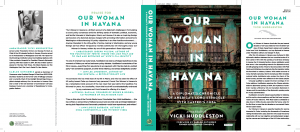 Her book, and her whole career, has been a testament to the foreign service. I’m proud of her for winning this award from her peers, and pleased to congratulate her here on my blog. If you want to read a great book about Cuba and the history of US policy toward the island nation, I heartily recommend her imperative book. You may also visit the author’s website.
Her book, and her whole career, has been a testament to the foreign service. I’m proud of her for winning this award from her peers, and pleased to congratulate her here on my blog. If you want to read a great book about Cuba and the history of US policy toward the island nation, I heartily recommend her imperative book. You may also visit the author’s website.
Our Woman in Havana: A Diplomat’s Chronicle of America’s Long Struggle with Castro’s Cuba
By Vicki Huddleston (Peru 1964-66)
Ambassador Vicki Huddleston (Peru 1964-66) served under Presidents Clinton and George W. Bush as Chief of the U.S. Interests Section in Havana. She also served as U.S. Ambassador to Madagascar and Mali. Her report for the Brookings Institution about normalizing relations with Cuba was adapted for President Obama’s diplomatic opening with Raúl Castro in 2014. She has written opinion pieces in the New York Times, Miami Herald, and Washington Post. She lives in Santa Fe, New Mexico.
Our Woman in Havana chronicles the past several decades of US-Cuba relations from the bird’s-eye view of State Department veteran and longtime Cuba hand Vicki Huddleston, our top diplomat in Havana under Presidents Clinton and George W. Bush. After the US embassy in Havana was closed in 1961, relations between the two countries broke off. A thaw came in 1977, with the opening of a de facto embassy in Havana, the US Interests Section, where Huddleston would later serve. In her compelling memoir of a diplomat at work, she tells gripping stories of face-to-face encounters with Fidel Castro and the initiatives she undertook, like the transistor radios she furnished to ordinary Cubans. With inside accounts of many dramatic episodes, like the tumultuous Elián González custody battle, Huddleston also evokes the charm of the island country, and her warm affection for the Cuban people. Uniquely qualified to explain the inner workings of US-Cuba relations, Huddleston examines the Obama administration’s diplomatic opening of 2014, the mysterious “sonic” brain and hearing injuries suffered by US and Canadian diplomats who were serving in Havana, and the rescinding of the diplomatic opening under the Trump administration. Huddleston recounts missed opportunities for détente, and the myths, misconceptions, and lies that have long pervaded US-Cuba relations. With Raúl Castro scheduled to step down in 2018, she also peers into the future, when for the first time in more than six decades no one named Castro will be Cuba’s leader. Our Woman in Havana is essential reading for everyone interested in Cuba, including the thousands of Americans visiting the island every year, observers who study the stormy relationship with our near neighbor, and policymakers navigating the nuances and challenges of the US-Cuba relationship.

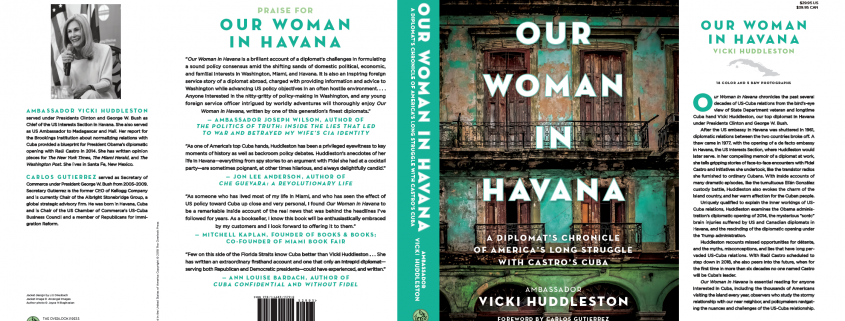
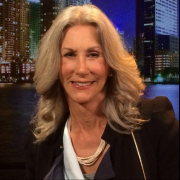
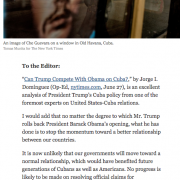
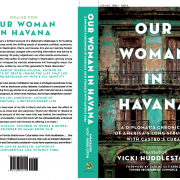
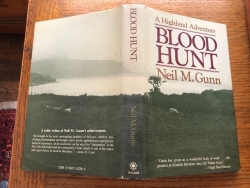
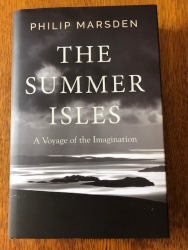
Leave a Reply
Want to join the discussion?Feel free to contribute!